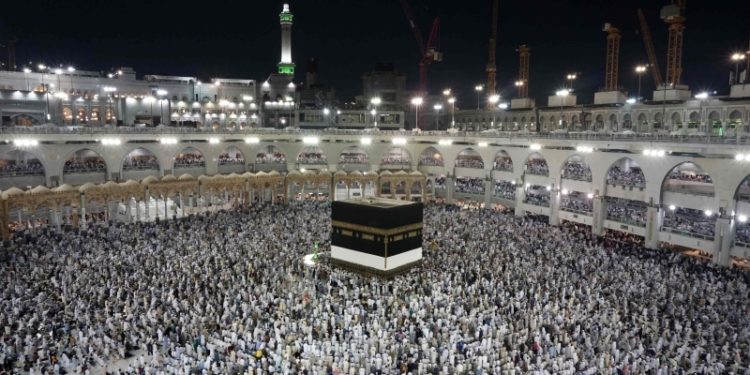
Saudi Arabia faced harsh criticism from various human rights organizations for politicizing the pilgrimage and preventing the opposition from performing sacred rituals.
During the siege of Qatar since June 5, 2017, the Saudi authorities have been involved in various restrictions on Qatari pilgrims and residents of Qatar.
The Ministry of Hajj and Umrah refused to communicate with the Ministry of Awqaf in Qatar to ensure pilgrims’ safety and facilitate the pilgrimage. The Saudi ministry claimed that this matter is in the hands of the higher authorities and declined to provide any guarantees for their safety.
The case drew the attention of the Arab Organization for Human Rights, which confirmed that the Saudi ministry refused to communicate with the Qatari Ministry of Awqaf to receive the list of the 2017 pilgrims, and complete procedures to facilitate their pilgrimage and provide guarantees for their safety.
The organization criticized the “Saudi authorities manipulation of the right to freedom of religious practice,” noting that Riyadh expelled the Qatari pilgrims before they finish Umrah. “This shows that these authorities do not realize the rights of these pilgrims stipulated in Islamic law and international law.”
The situation was not limited to Qatar. The saudi authorities arrested Mahmoud bin Rajab and Mohammed Hussein al-Khadraoui, military officials in the Libyan Government of National Accord, completing Umrah, in late June 2017.
The arrest provoked angered bodies and institutions and while Al-Wifaq government demanded the Saudi to clarify the fate of the detainees.
Iran remains one of the first voices calling for the internationalization of the administration of the two holy mosques. Other Iranian officials demanded the separation of Mecca and Medina geographically and politically from Saudi Arabia itself.
The Saudi violations led activists to launch Al Haramain Watch in 2018. The organization aims to ensure Saudi Arabia’s rightful management of the holy sites and the non-politicization of Hajj and Umrah.
Established on January 9, 2018, the organization defines itself as an institution to monitor the Saudi administration of the two Holy Mosques, as well as the holy sites, including historical and Islamic sites.
The organization says it is represented by all Islamic countries and keen to ensure that Saudi Arabia does not harm the Holy Places, whether with inefficient management or “any kind of management based on policies linked to individuals or influential people.”
The Commission explains that its aim is to ensure that Saudi Arabia manages the two holy sites and Islamic sites in a sound manner that preserves the past and present of Islam. The organization aims to do this by providing advice to Riyadh through an Islamic advisory board and involving Muslim countries in the management of the holy sites.
the organization also aims to stop the work of blurring Islamic identity in Mecca and Medina, “through the unlimited urban expansion, which has destroyed many of those sites.”
The organization also aims to prevent the isolation of Saudi Arabia to manage the holy feelings, which may affect the safety of pilgrims and pilgrims.
The Commission also stresses that its goal is to ensure that feelings are not closed for “unsubstantiated reasons” such as visits to celebrities, celebrities or guests of Saudi Arabia.
One of the organization’s main objectives is to monitor any violation against pilgrims and to ensure that the Hajj and Umrah rations are distributed to Muslim countries fairly.